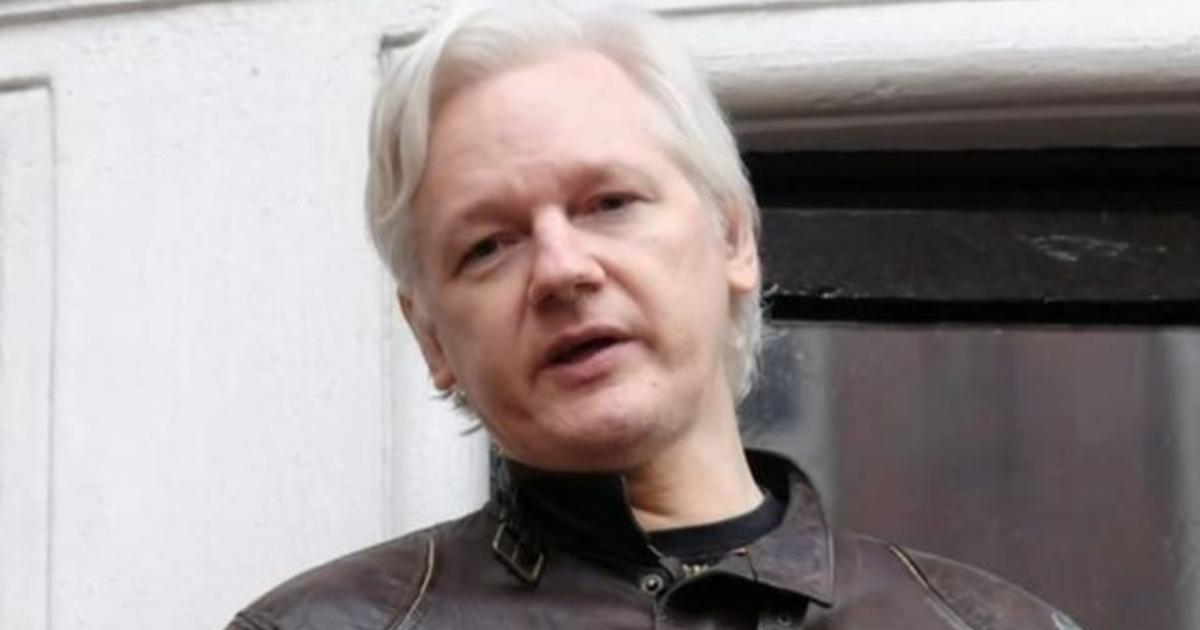
What did Julian Assange do? WikiLeaks’ most significant document dumps

WikiLeaks founder Jullian Assange has pleaded guilty to a single charge of publishing U.S. military secrets in a U.S. court on the Northern Mariana Islands, before he is set to be sent back to his home country of Australia.
Assange had been imprisoned in the U.K. since 2019, and before that, he lived in the Ecuadorian Embassy in London for seven years, where sought political asylum.
What did Julian Assange do?
Julian Assange founded the WikiLeaks website, which published thousands of confidential leaked documents from sources including the U.S. government, large corporations and personal emails.
indicted Assange in 2019 on more than a dozen charges alleging he illegally obtained classified information about America’s wars in Afghanistan and Iraq and disseminated it on WikiLeaks. Prosecutors accused him of recruiting individuals to “hack into computers and/or illegally obtain and disclose classified information.”
The United States had been seeking Assange’s extradition from the U.K., and he could have faced a potential 175-year prison sentence in the U.S. if convicted.
What are some of Wikileaks most significant dumps?
Video of gunfire from U.S. helicopter killing civilians in Iraq
In 2010, WikiLeaks published video taken from a U.S. helicopter attack in Baghdad that showed, among others, Reuters news photographer Namir Noor-Eldeen and his assistant Saeed Chmagh being killed by American fire.
When a van arrived to pick up the wounded, the video showed it being fired on as well.
A voice could be heard on the recording of the attack saying: “Light them all up.”
Former army intelligence analyst Chelsea Manning was later arrested for releasing the video along with other classified material about the war.
Documents pertaining to the wars in Iraq and Afghanistan
WikiLeaks published tens of thousands of documents, many of which were leaked by Manning, which related to the wars in Iraq and Afghanistan.
The documents included evidence there had been scores of civilians killed by the U.S. in unreported incidents, and that Iraqi forces had tortured prisoners. They also included details about the hunt for Osama bin Laden and NATO concerns over Pakistan and Iran potentially aiding the Taliban in Afghanistan.
At the time of their release in 2010, the Obama White House criticized the publication of the files and said they could endanger the lives of Americans and U.S. partners.
Emails from top Democrats
In 2016, WikiLeaks released around 20,000 Democratic National Committee emails, many of which seemed to show acrimony toward Democratic presidential candidate Sen. Bernie Sanders and favoritism toward Hillary Clinton. The leaked emails raised concerns that alienated Sanders supporters would not support Clinton once she won the nomination.
Then, about a month before the election, Wikileaks said it had 50,000 emails from the account of Clinton’s campaign chairman, John Podesta, and began releasing them in batches. WikiLeaks said it would release more emails every day until Election Day.
The emails touched on a range of topics, including how to deal with correspondence with President Obama on Hillary Clinton’s private server while she was secretary of state and advice from Jennifer Granholm, who served as Michigan governor from 2003-2010, on how Clinton might get “out of the bubble” and engage with Americans.
One leaked email suggested that Democratic National Committee Chair Donna Brazile tipped off the Clinton campaign about a question ahead of a town hall.
Another email contained what were said to be transcripts of Clinton’s three Wall Street speeches to Goldman Sachs, though her campaign declined to confirm their authenticity. Primary opponent Bernie Sanders attacked her over the speeches and demanded that she release the transcripts.
It is difficult to say whether the daily release of the Podesta emails affected the outcome of the 2016 campaign, because there were also other explosive news stories in that same month. On the first day WikiLeaks began publishing its trove of Podesta emails, an “Access Hollywood” tape of then-candidate Donald Trump speaking disparagingly about women with Billy Bush was released. A few days before the election, the FBI revealed it had found emails related to Clinton’s State Department tenure on a laptop belonging to the estranged husband of aide Huma Abedin, former New York Rep. Anthony Weiner.
In an interview with “Frontline” about a month after the election, Podesta noted later that in those thousands of emails, there were no “earth-shattering revelations.” But there was, he said, a secondary effect: “It kind of obliterates your ability to have a positive message.” It was the end of the campaign, and “I think what people want to hear about is the future,” he said. “But we were stuck in a cycle in which the dominant coverage was either, again, something outrageous [Trump] had said or something they had leaked.”
More
Source: cbsnews.com